Resource Center
The Transit Workforce Center is pleased to host a curated collection of publications and other materials to assist stakeholders engaged in transit workforce development. The Resource Center includes case studies, training materials, research reports, and other materials of interest, including publications produced by federal government agencies, transit organizations, and independent research entities. Resources may be filtered by topic, resource type, and transit mode. This TWC blog post explains how to use the Resource Center.
We are continuing to update the Resource Center regularly. Please contact us via the Request Help menu option if you would like assistance using the Resource Center or are looking for resources on a particular topic. We also welcome suggestions of topics or specific resources to add.
Content in external resources linked from the Resource Center is solely the responsibility of the resource authors and does not necessarily reflect the perspectives of or endorsement by the Transit Workforce Center.
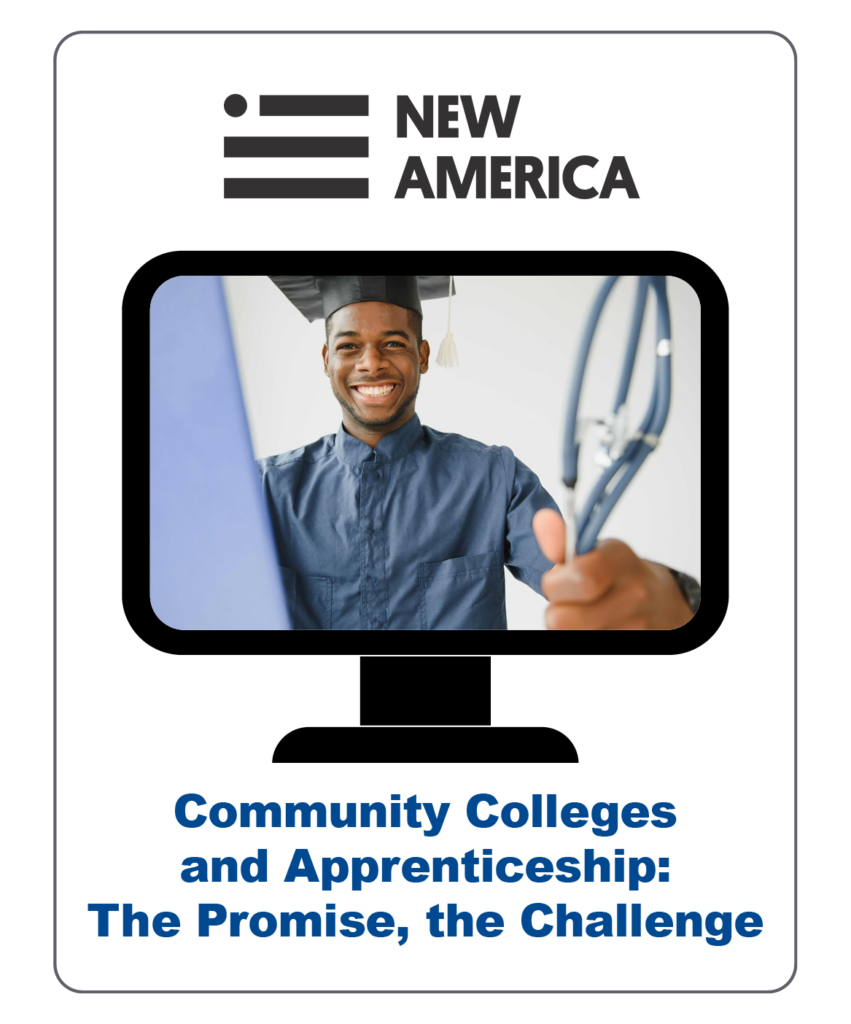
Community Colleges and Apprenticeship: The Promise, the Challenge
To better understand the challenges and opportunities facing community colleges that want to expand apprenticeship opportunities to their students, New America conducted a year-long study. They spoke to apprenticeship, workforce development, and community college leaders about the community colleges role in expanding apprenticeship.
New America Center on Education and Education Policy
November 2023
TOPICS: Apprenticeship, Career Pathways, Policy and Planning
Based on these conversations, we chose case studies and conducted in-depth interviews with leaders from the Community College System of New Hampshire’s ApprenticeshipNH, Arapahoe in Colorado, San Jacinto in Texas, and Howard Community College in Maryland’s programs in IT and cybersecurity, and Coastal Alabama Community College’s nursing apprenticeship.
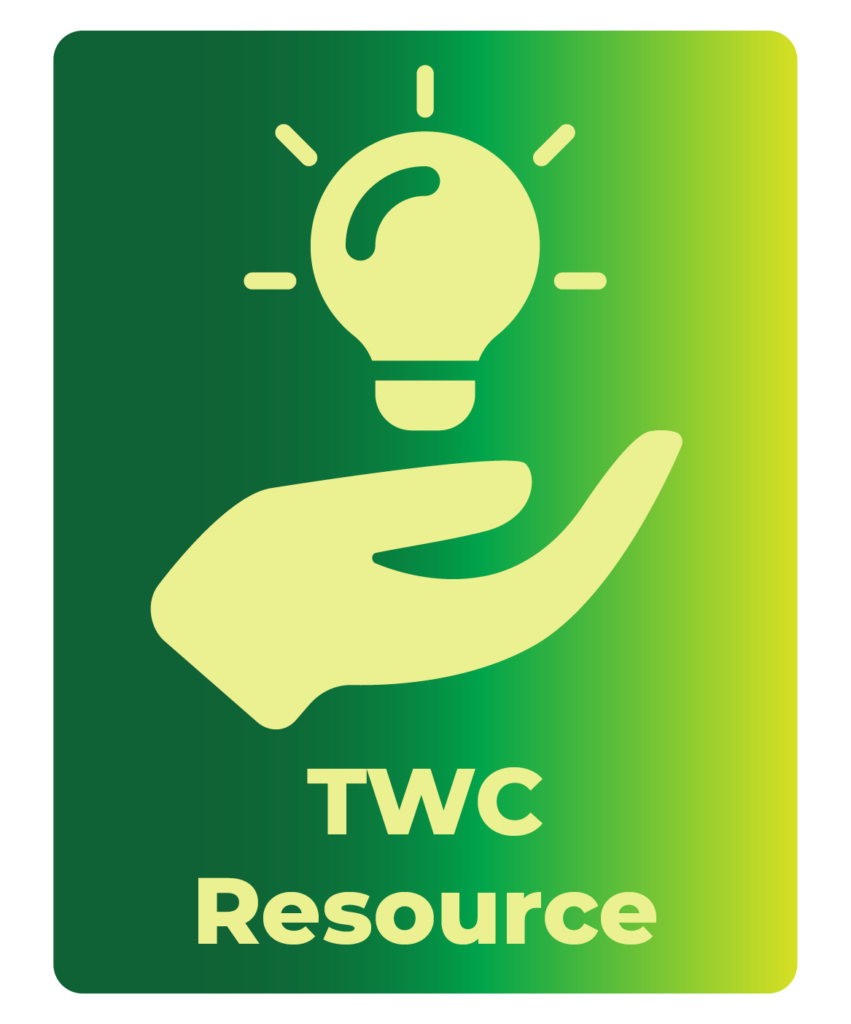
Critical Conversations: The Public Transport Frontline Worker Crisis
Public transportation agencies across the country are facing challenges in attracting, recruiting, and retaining frontline employees. Critical Conversations provides insights from youth on transit’s frontline workforce crisis – bus and train operators, and entry-level mechanics. Researchers conducted a national survey targeting respondents under the age of 30, compiled agency-specific human resources information, and held focus groups asking participants to share their experiences and insights about challenges, lessons learned, and opportunities regarding the workforce crisis.
introducing youth to American infrastructure
November 2023
TOPICS: Community Engagement, Hiring and Recruitment, Policy and Planning, Retention, Workforce Shortage
Contributors: Dr. Jamaal Schoby, Dr. Beverly Scott
The Barr Foundation provided support for the research element of this important youth empowerment and “people-readiness” initiative.
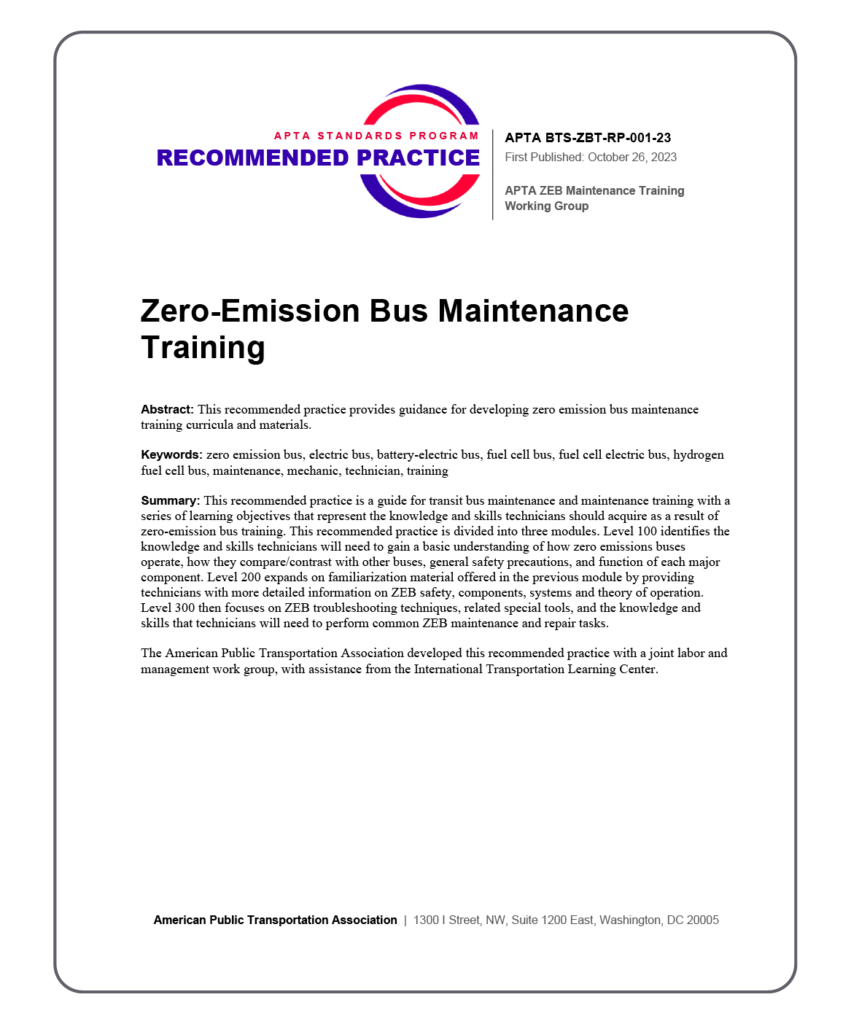
ZEB Maintenance Training Standards
This recommended practice provides guidance for developing low-no bus maintenance training curricula and materials.
American Public Transportation Association
October 2023
TOPICS: Low-No, Safety and Health, Training
This recommended practice is a guide for transit bus maintenance and maintenance training with a series of learning objectives that represent the knowledge and skills technicians should acquire as a result of ZEB training. This recommended practice is divided into three modules. Level 100 identifies the knowledge and skills technicians will need to gain a basic understanding of how ZEBs operate, how they compare/contrast with other buses, general safety precautions, and function of each major component. Level 200 expands on familiarization material offered in the previous module by providing technicians with more detailed information on low-no safety, components, systems and theory of operation. Level 300 then focuses on low-no troubleshooting techniques, related special tools, and the knowledge and skills that technicians will need to perform common low-no maintenance and repair tasks.
The American Public Transportation Association developed this recommended practice with a joint labor and management work group, with assistance from the International Transportation Learning Center.
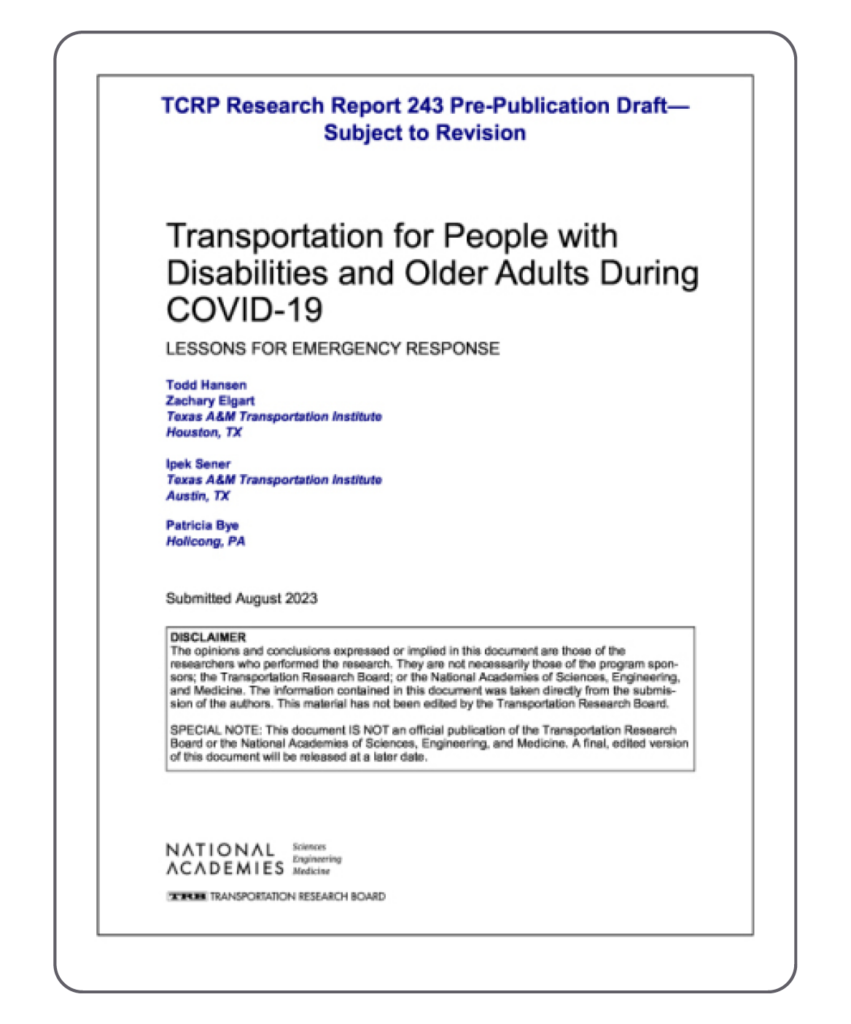
Transportation for People with Disabilities and Older Adults During COVID-19: Lessons for Emergency Response
This pre-publication report aims to provide transportation organizations (including transit agencies, specialized transportation providers, and other local government agencies and stakeholders) with helpful information and strategies on providing service for persons with disabilities and older adults in emergency situations.
Transportation Cooperative Research Program
October 2023
LEARN MORE
Contributor(s): National Academies of Sciences, Engineering, and Medicine; Transportation Research Board; Transit Cooperative Research Program; Todd Hansen; Zachary Elgart; Ipek Sener; Patricia Bye
 Transportation for People with Disabilities and Older Adults During COVID-19
Transportation for People with Disabilities and Older Adults During COVID-19
 Supplemental Pocket Guide
Supplemental Pocket Guide
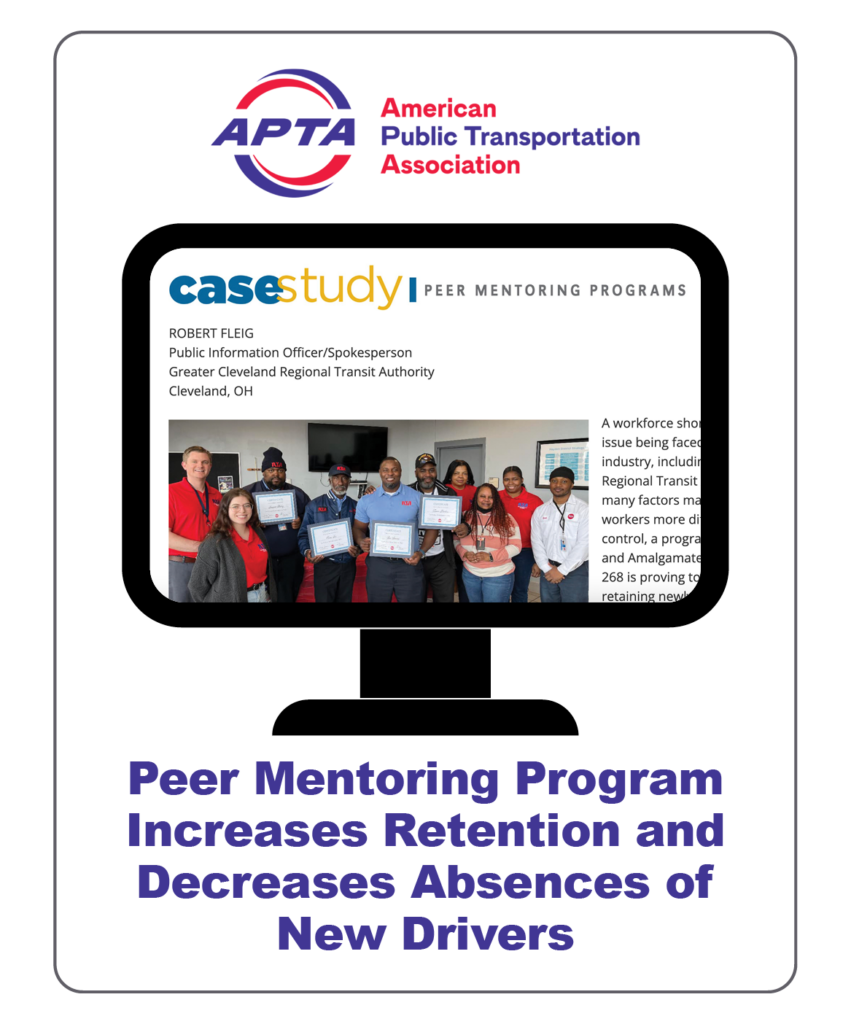
Peer Mentoring Program Increases Retention and Decreases Absences of New Drivers
This case study from APTA’s Passenger Transport presents findings from the mentorship program at Greater Cleveland Regional Transit Authority (GCRTA). GCRTA and ATU local 268 launched their Positive Impact Program, a peer mentoring program that has seen impacts on retention and absenteeism within its first nine months.
American Public Transportation Association
October 2023
LEARN MORE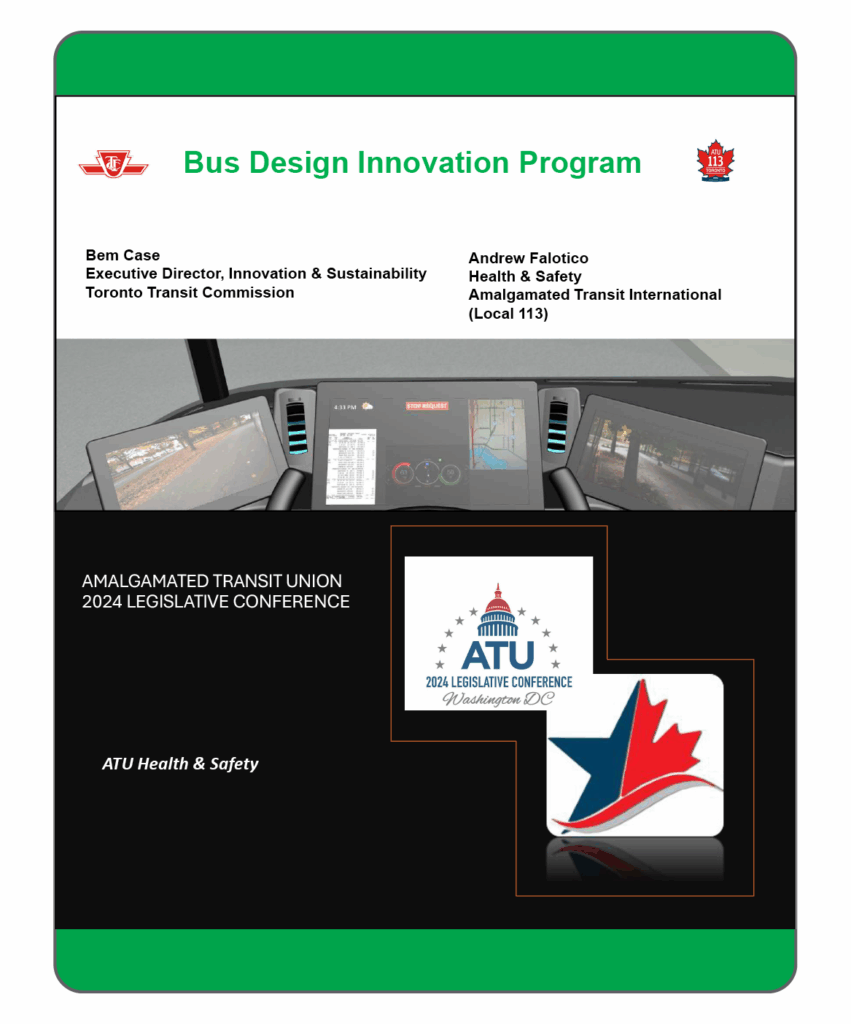
Bus Design Innovation Program
The Bus Design Innovation Project aimed to improve the security and environment of bus operators. The design provides a barrier that shields the operator’s workspace from the passenger area, which reduces the risk of assaults and protects against biohazards without decreasing view of mirrors. The design also improved ergonomics. The partnership between ATU International, ATU local 113, Centennial College, and Toronto Transit Commission enabled the development of a prototype, which was showcased at the ATU Canada Conference in September 2024.
ATU International; ATU local 113; Centennial College; Toronto Transit Commission
LEARN MORE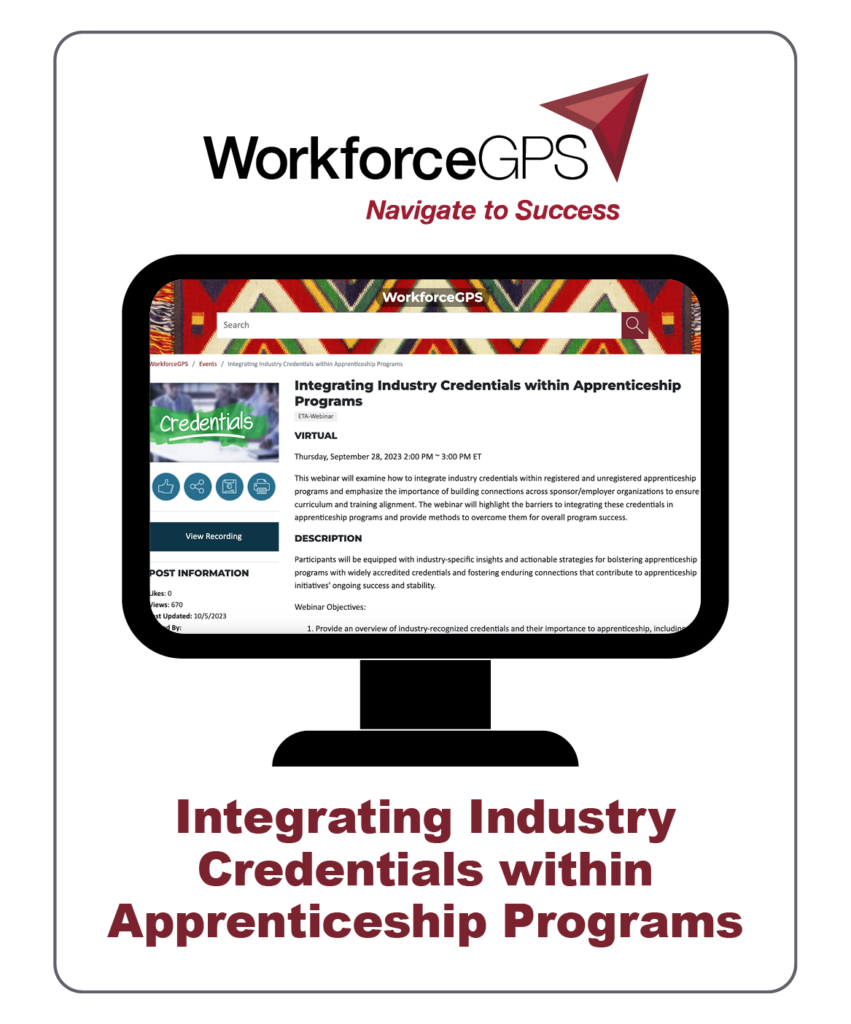
Integrating Industry Credentials within Apprenticeship Programs
This webinar examines how to integrate industry credentials within registered and unregistered apprenticeship programs and emphasizes the importance of building connections across sponsor/employer organizations to ensure curriculum and training alignment.
WorkforceGPS
September 2023
TOPICS: Apprenticeship, Career Pathways
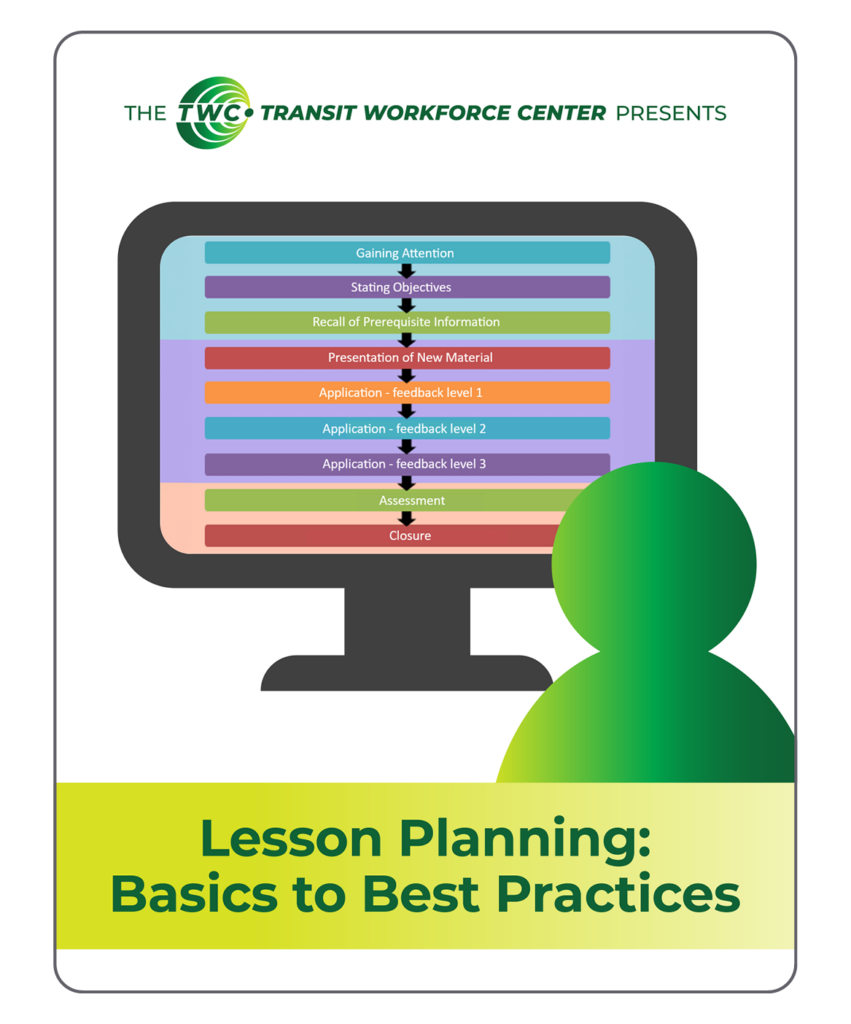
Lesson Planning Webinar: Basics to Best Practices
Have you ever been tasked with developing or delivering a class and didn’t know where to start? Do you have a class that isn’t engaging learners and you don’t know why? On September 26, 2023, TWC hosted an informative webinar on Lesson Planning basics and best practices with award winning author and advisor on all things training, Dr. Chuck Hodell. We took a high-level look at Lesson Planning for those new to training, as well as discussed how to overcome inherent challenges and best practices for transit trainers.
Transit Workforce Center
September 2023
TOPICS: Trainer and Mentor Development, Training







